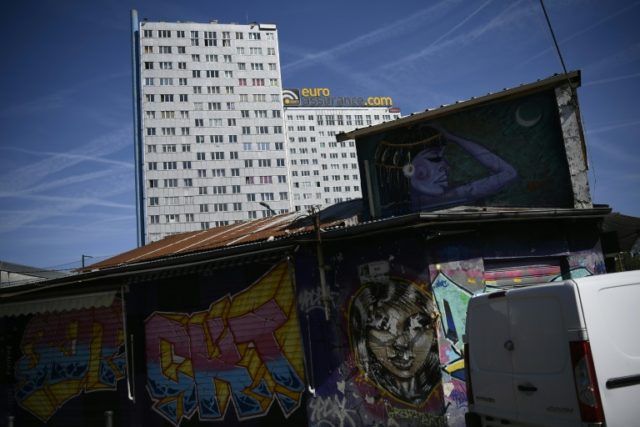Paris (AFP) – The man tasked by French President Emmanuel Macron with coming up with a battle plan for the country’s most deprived areas called Thursday for a “radical change” in approach in high-immigration suburbs.
During campaigning, Macron vowed to tackle what he termed the “house arrest” of many young people who find it hard to escape the poverty, unemployment and crime that blight many suburban areas of French cities.
He promised to invest more in basic services, promote entrepreneurship as a fast-track to success and crack down on employers who push applications from people with Arab- or African-sounding names to the bottom of the pile.
Former centrist minister Jean-Louis Borloo was asked to devise a blueprint, which has been keenly awaited by campaigners who accuse Macron of having overlooked the plight of the poor in his first 12 months in office.
The 60-page report lists 19 programmes to boost the presence of the state in low-income areas, including a “leaders’ academy” modelled on Paris’s elite ENA college, which Macron attended.
Poor neighbourhoods are “not looking for handouts” but “the right to equality”, Borloo said.
But with unemployment levels running at nearly three times the national average and state services “massively less present than elsewhere” faith in the system had been shattered, he said.
Warning that failure to integrate “millions of invisible souls” could cause communities to retreat into separate religious and ethnic identities, Borloo proposed spending 5.0 billion euros to create a “blast effect”.
The report could not have come soon enough for Bruno Beschizza, mayor of Aulnay-sous-Bois, a town of 93,000 people north of Paris battling 30 percent youth unemployment and a thriving drugs trade.
Beschizza, a member of the opposition Republicans, endorsed the centrist Macron for president in last year’s run-off, seduced by his can-do message.
A year later, however, he said little had changed for his area, which was hit by rioting during the election campaign last year and suffered years of budget cuts.
Beschizza is impatient to start revamping a vast site left fallow after carmaker Peugeot-Citroen pulled out of Aulnay-sous-Bois.
But five months after Macron announced he would double a 10-year fund for urban renewal to 10 billion euros he is still waiting to see the money flow.
“There’s no point in announcing billions on national television if nothing arrives in our neighbourhoods. It erodes politicians’ credibility,” he complained.
– ‘We feel abandoned’ –
Nearly 6 million people, around a tenth of France’s population, live in 1,500 neighbourhoods categorised as “urban policy priority districts”.
Macron polled strongly in these areas during his campaign — second only to radical leftist Jean-Luc Melenchon — with his pro-business, pro-entrepreneurship message.
Lamenting a broken social elevator he promised a “clear battle plan”, including subsidies for companies that hire young people from the suburbs; more post offices, health centres and other community services; and thousands more police officers for crime-blighted neighbourhoods.
But the measures — some of which had been trialled by previous governments with little success — fell short of expectations.
“We feel abandoned,” Michel Fourcade, the Socialist mayor of the gritty Paris suburb of Pierrefitte told AFP last month.
“The state prefers to look after the richest than the poorest,” he said, referring to the government’s decision to trim housing benefits for the poor while slashing wealth taxes.
– ‘Piecemeal approach’ –
Macron, a 40-year-old former banker, has argued that his pro-business policies will benefit the poor most, by attracting jobs and investment.
Beschizza agrees that investment is key, but says Macron, who has never served at local level, has a “piecemeal” approach.
“A businessman will not set up in a neighbourhood where he fears being robbed or has dealers outside his door,” the former police officer said.
The reform-minded president has also placed the emphasis on education.
In one of his first measures, he cut class sizes in high-priority zones from a maximum of 24 pupils per teacher to 12 for children aged six to seven.
But the urban poor barely got a mention in two long French television interviews given by the president last week to mark his first year in power.
And his promise to tackle the discrimination suffered by Muslim youths particularly, from employers, landlords and the police, have amounted to little more than a scheme to try catch out large companies that racially profile.
All eyes are now turned to the Borloo report — and to how many of his spending proposals are taken up by Macron’s cost-cutting government.
Prime Minister Edouard Philippe said it would “feed into” a plan to be announced in May.
burs-cb/adp/nla

COMMENTS
Please let us know if you're having issues with commenting.